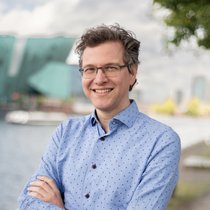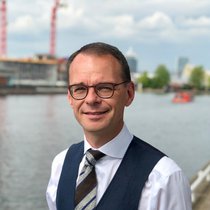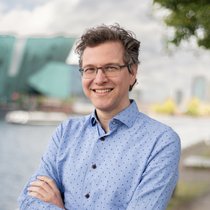The Challenge
The Netherlands, one of the most urbanized areas in the world, faces rapid urban growth necessitating robust infrastructure. However, the maintenance of existing civil infrastructure—particularly bridges, quay walls, and pavements—is lagging due to scarce resources for replacement, reinforcement, and maintenance. Municipalities like Amsterdam face significant tasks in this regard. Additionally, urban areas are dealing with climate-related challenges such as climate change, water management, raw material scarcity, and energy demands.
Collaborative Efforts
At this historical tipping point, close cooperation between science, public clients, and contractors is crucial. AMS Institute participates in a Growth Fund project aimed at developing emission-free, circular, and climate-proof solutions for the infrastructure sector. A collaboration of over 130 partners will work on 60 initiatives, use a 200 million euro budget to promote a sustainable transition within the sector.
As the program lead and owner of the Living Lab Learning Environment work package, AMS Institute coordinates and drives collaboration, focusing on innovations and scientific validation.
“The impact we can make with a sustainable transition in the infra sector is immense. And with this broad consortium, this transition will be greatly accelerated.”
Menno van Dijk
Project Manager Circularity in Urban Regions
Wider Impact
The Netherlands owes much of its prosperity to its reliable urban, regional, and national infrastructure. Most of this infrastructure dates from the construction phase after the Second World War (1960-1980). The infrastructure is being used more intensively than it was designed for and by heavier modes of transport than intended. This means a lot of this infrastructure must be renovated or replaced in the coming decades. Renovation and replacement are a considerable challenge: they cause disruptions with associated nuisance for users and residents.
Furthermore, there is also a need for more personnel, materials and other resources, and reductions in nitrogen and CO2 emissions must be considered. Nevertheless, it is important that the quality of the Dutch infrastructure is maintained, in order to keep the Netherlands accessible for business, commuting, schools, universities, residential areas, hospitals, etc.
Key Topics
The partners therefore address the following topics, starting with the most urgent and impactful areas: bridges, quay walls, and pavements.
- Data-driven Management and Maintenance: developing practices and technological solutions for the data and risk-driven management and maintenance of infrastructure networks.
- Lifespan Extension: developing and testing new designs and working methods to extend the functionality of infrastructure.
- Future-proof Replacement of Infrastructure: developing and testing materials, processes, and techniques for the future-proof replacement of infrastructure.
The partners also innovate in materials, sensors, calculation models, and new working methods. Additionally, they initiate projects focused on cultural change and knowledge sharing.
Methods
- Urban Living Labs: AMS Institute’s Urban Living Labs offer a co-innovative setting where multiple stakeholders jointly test, develop, and create metropolitan solutions. This approach ensures smoother and faster adoption of solutions by all stakeholders involved. Living labs are particularly effective for addressing complex multi-stakeholder challenges on a large scale
- Safe Space Dialogue: This method focuses on cultural change within the infrastructure sector. It aims to attract and develop human capital with strong soft skills and innovation-oriented management in the workplace. The program is led by VU Amsterdam and the University of Twente.
- Norms & standards: NEN is involved to support the transition with new or adjusted norms and standards for the infra sector.
Intended Impact
By the end of 2028, we aim to significantly advance sustainable infrastructure in the Netherlands. Our goals include a 50% reduction in the Environmental Cost Indicator, allocating 10% of Replacement & Renovation budgets from at least five public contracting authorities to innovative solutions, creating Digital Twins for 255 civil engineering works, and establishing new norms for bio-based and circular materials.
Principal Investigators
Project members

Anna
Chojnacka

Menno van Dijk
AMS Institute
Joppe van Driel
AMS Institute
Hans Roeland Poolman
AMS Institute
Henk Wolfert
AMS Institute
Gerben Mol
AMS Institute
Isabelle Snaauw
AMS Institute
Lena Sophie Wagner
AMS InstitutePartners




